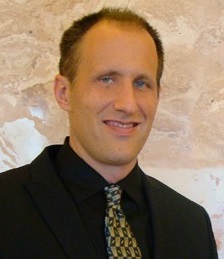About
Dr. Craig Siders
Experience
Dr. Craig Siders is a licensed psychologist and clinical neuropsychologist. He specializes in providing evidenced-based psychotherapy, neuropsychological assessment, and psychological assessment of adult and geriatric clients. He has extensive experience providing psychotherapy for people struggling with:
- Symptoms of depression and other mood disorders
- Generalized anxiety disorder (anxiety)
- Trauma
- PTSD
- Phobias
- Interpersonal problems
- Adjustment and coping skills
Dr. Siders has experience providing neuropsychological evaluations to those suffering from:
- Traumatic brain injury
- Concussive syndrome
- Neurodegenerative disorders, including
- Alzheimer’s disease
- Mild cognitive impairment
- Lewy body disease
- Parkinson’s disease
- Many others
- Stroke
- Tumor
- ADHD
- Seizures of various etiologies
Philosophy
Dr. Siders has developed a multi-disciplinary treatment philosophy. He believes in taking the whole person into account, not just looking at someone as if they were a diagnosis.
Dr. Siders combines the best practices established by research with compassion, empathy, and warmth.
For more information about Dr. Siders’s treatment philosophy, please see his Psychotherapy page.
Credentials
Dr. Siders finished his doctoral studies and received a Ph.D. in clinical psychology from the University of South Florida in 2008. He completed an APA-accredited internship at the Long Beach VA and a two year postdoctoral fellowship at Harbor-UCLA Medical Center. Currently, Dr. Siders is in private practice in Sherman Oaks and serves as an adjunct professor at California State University-Long Beach.
He has worked in a variety of settings providing neuropsychological assessment, psychological assessment, cognitive enhancement therapy, and individual and group psychotherapy.
Dr. Siders has published peer reviewed articles on subjects such as traumatic brain injury, Parkinson’s disease, PTSD, and drug free interventions for dementia-associated wandering. He has presented research at several national and international conferences on topics such as traumatic brain injury, sports-related concussive syndrome, improving techniques for the detection of malingering, and the measurement of memory deficits in Alzheimer’s disease and mild cognitive impairment.